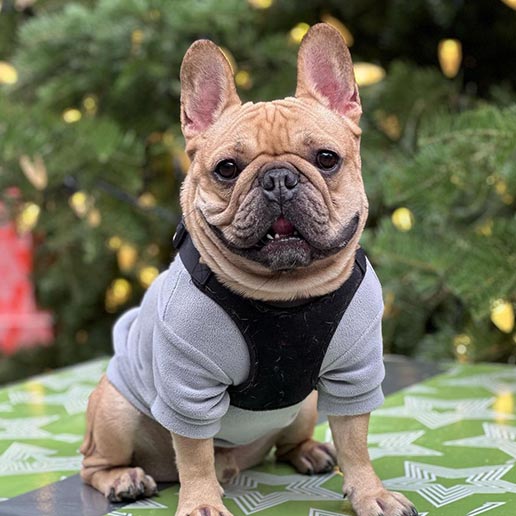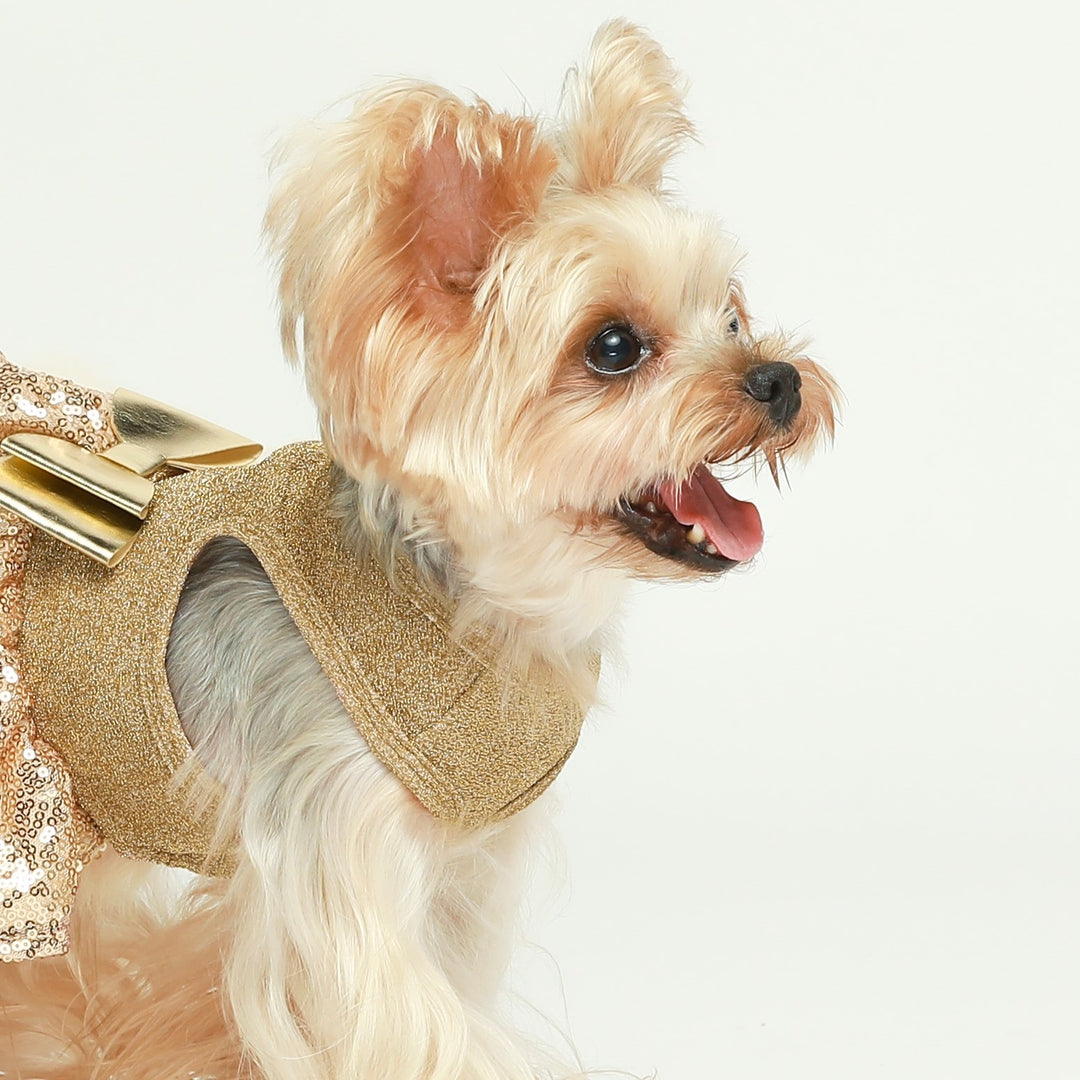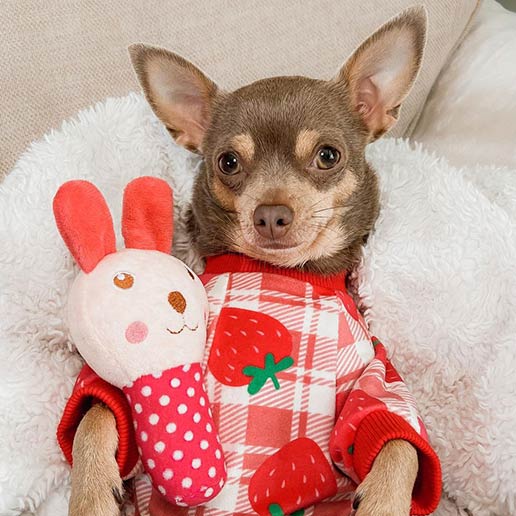Why Does My Dog Lick Me So Much?
My dog, Cleo, greets me at the door every day by jumping up to lick my face with her warm, wet tongue. As cute as this ritual is, lately it seems like she wants to lick me all the time - my hands and arms while I’m cooking, my legs when we’re sitting on the couch, even licking the air when I walk by. I’ve started to wonder, why does my dog lick me so much? While some licking is normal for dogs, excessive licking can indicate underlying issues. In this article, we’ll explore some common reasons dogs lick their owners a lot and when you should be concerned about excessive licking.
Why My Dog Licks Me: General Reasons
Dogs lick for a variety of behavioral and biological reasons. While some licking is normal, excessive or obsessive licking may indicate an underlying issue. Common explanations for dogs who lick their owners too much include:
Affection/Greeting
For dogs, licking is a natural social greeting. When puppies are born, their mothers lick them to groom them, stimulate bodily functions, and bond with them. This licking becomes associated with care, comfort and reward. Later in life, dogs continue to lick familiar people and animals as a friendly gesture and expression of affection.
Licking releases pleasurable endorphins in dogs, so they find it soothing and rewarding. When your dog greets you with licks when you get home or cuddles up to lick your hand, it’s their way of saying “I love you!” However, some dogs take this overboard and lick their owners excessively out of hyper-attachment.
Seeking Your Attention
Dogs may lick you to get your attention, especially if you react strongly to the licking. Any type of response, positive or negative, rewards the behavior. Some dogs will persistently lick you if it receives your attention.
You Taste Good
Dogs explore the world through licking and their sense of taste. The smell of food, soap or perfume on your skin triggers their curiosity. Licking allows them to gather more sensory information. Some dogs become obsessed with certain tastes or smells.
OCD and Anxiety
Repetitive, compulsive licking can signal anxiety, stress or obsessive-compulsive disorder (OCD). Licking produces endorphins that help dogs self-soothe. Focused licking on one spot signals psychological distress.
Boredom Buster
High energy dogs may excessively lick you or themselves when understimulated or bored. The licking sensation provides physical and mental engagement. Ensure your dog gets sufficient daily exercise and enrichment.
Communication Cues
Dogs use licking to understand their world. They notice small movements and smells that give them clues about what’s happening. When dogs lick faces, mouths, and ears, it helps them learn more about their relationships with others. For dogs, licking is a way of connecting with friends and family.
When and Why Dogs Shows Love Through Licking
Why Does My Dog Lick My Face in the Morning?
Your dog’s morning face licks likely serve several purposes. Dogs lick for grooming, so morning face licks may be cleaning your face or their own muzzle after a long night’s sleep. Morning licks also help strengthen your bond first thing, with the licking motion releasing feel-good endorphins in both you and your dog. Dogs love routine, so a daily morning lick ritual provides comfort. The smell of your breath and skin give dogs information about your mood, health, and identity. By licking your face, your dog is gathering data through scent and taste. Finally, some morning face licking is simply your dog saying good morning and expressing their happiness to see you. It’s their way of starting the day bonded to their favorite human.
Why Does My Dog Lick My Hands?
Dogs commonly lick hands as a form of bonding and affection. Since puppies lick their mother’s paws, licking hands remains associated with care and comfort into adulthood. Human hands give off all kinds of intriguing smells from activities performed throughout the day that dogs wish to explore. Your dog’s saliva contains chemical receptors that allow them to gather information about where you’ve been and what you’ve touched. Some dogs lick when being petted because they crave the taste of salt on human skin. Others may lick hands demandingly to request food, attention, or access to more petting and touch. Persistent paw licking could point to anxiety, boredom or a lack of environmental stimulation. If your dog obsessively targets your hands, pay attention to when it happens and what need they may be communicating through this focused licking behavior.
Why Does My Dog Lick My Ears?
Licking human ears can be a surprising and off-putting dog behavior. However, it makes more sense when you consider a dog’s perspective. For dogs, licking other dogs’ ears, faces, and mouths is a very social behavior. They derive chemical and biological cues about identity, mood, and health status from ear licking. So when dogs lick human ears, they are simply trying to gather information about us in one of the ways dogs communicate most intimately with each other. Ears may also accumulate inviting smells from shampoo, perfume, or food. Dogs like routines, so ear licking may become a habitual quirk. While harmless, excessive ear licking should be redirected, as it’s difficult for humans to interpret. Keep dog ear licking minimal by substituting a toy when they go for your ears.
Why Does My Dog Lick My Feet?
Licking human feet is natural dog behavior. Your feet lead an adventurous life trampling through interesting environments, so they likely collect many exciting scents for your dog to sample. The sweat on your feet may also provide salt and minerals dogs crave. Licking feet may be a way of including you in the “pack” since foot licking between dogs signals bonding. For some dogs, licking feet is simply a habit that started because your moving feet attracted their interest. Anxiety and boredom can also drive foot licking, as can general curiosity. While harmless, excessive foot licking can be annoying and ticklish. Try wiping your feet before interacting with your dog, or keep them covered with socks. Distract compulsive foot lickers with toys or training. Make sure to clean feet thoroughly after being outside to prevent ingestion of chemicals or germs. Overall, see foot and floor licking as your dog embracing your adventures together.
Tips to Reduce Your Dog’s Excessive Licking
If your dog’s constant licking has become problematic, there are some training techniques and lifestyle changes that may help. Here are 5 methods to curb excessive licking:
- Redirect Your Dog’s Attention: When your dog licks you, immediately divert their attention to another activity. Offer an alternative focus like a toy, treat puzzle, or obedience command. This trains them to redirect urges onto more positive behaviors.
- Limit Access to Trigger Areas: If your dog obsessively licks one area of their body, use an Elizabethan collar and clothing to prevent access. This can help break the habit while you address the underlying cause.
Instagram: gailitdiane
Cute Dog in a Ribbon Bow Dog Dress - Remove Scent Triggers: Dogs explore scents by licking. Avoid wearing lotions, perfumes or soaps that seem to attract licking. Change clothes after using smelly chemicals or foods that trigger licking.
- Increase Physical and Mental Exercise: Make sure your dog gets at least 30-60 minutes of activity daily. Take on training games and provide interactive toys to stimulate your dog mentally too. This prevents boredom and anxiety.
- Avoid Reinforcing Triggers: Notice when and where your dog licks most often. Avoid petting, feeding treats, or giving attention during those times. Withholding rewards can discourage the behavior.
Instagram: yuromommy
Bichon in a Leopard Dog Bikini - Try Bitter Sprays: Apply a safe but bitter-tasting spray to your skin or bandages to teach your dog that licking you results in a negative sensation. Most dogs quickly learn to avoid the unpleasant flavor.
Work closely with your veterinarian to ensure there is no underlying medical cause. With consistency, removing rewards, and addressing motivations, you can curb excessive licking.
When Dog Licking Goes Beyond Normal: Signs to Seek Help
While some amount of licking is normal, excessive licking behaviors can be problematic. Consult your veterinarian if your dog shows any of the following symptoms:
- Excessive, repetitive licking that leads to hair loss, bald spots, skin damage, or infection. This indicates an unhealthy obsessive behavior.
- Licking that is accompanied by other changes like increased thirst/urination, appetite changes, lethargy, or weight changes. These could signify an underlying medical condition.
Instagram: all_cali_cuteness
Dog in a Rainbow Dog Shirt - Focused, excessive licking of one area of the body, which could mean injury, irritation, or a skin disorder.
- Attention-seeking licking that becomes excessive or disruptive to daily home life. Your dog may be understimulated.
- Anxiety-related licking that progressively worsens or is paired with destructive behaviors like chewing or aggression. This points to a psychological problem.
- A sudden increase in licking for no apparent reason. This could mean your dog is in pain or distress.
Instagram: sweetheart_susieq
Shih Tzu in a Rainbow Striped Dog Dress - Compulsive licking of non-food objects like carpet or furniture. This may indicate obsessive-compulsive disorder.
If your dog exhibits compulsivity, anxiety, or self-harm related to licking, seek help immediately. The sooner the underlying issue is identified, the faster your dog’s quality of life can improve.
Final Thoughts
There are many potential motivations behind your dog’s excessive licking behavior. Dogs naturally lick for grooming and as a social bonding mechanism. However, abnormal levels of licking can indicate underlying physical, behavioral, or psychological issues requiring veterinary attention. If your dog’s licking seems obsessive, causes harm, or is paired with other symptoms, consult your vet to uncover the root cause. With the right treatment plan, which may include medication, training, or environmental changes, you can curb unhealthy licking. Understanding your dog’s behavior will strengthen your relationship and set you both up for success. With patience and partnership with your vet, you can get to the bottom of your dog’s excessive licking habit.
Frequently Asked Questions
Q1: Why does my dog lick itself so much?
Excessive self-licking can indicate allergies, skin irritation, anxiety, or boredom. Vet checkups can identify medical causes. More exercise, training, toys, and anxiety reduction tactics can help behavioral causes.
Q2: Why does my dog lick me after I’ve eaten?
Your dog licks you after eating because your skin or breath provides food smells and flavors that your dog wishes to further explore through tasting and scenting.
Q3: Why does my dog lick me when I pet him?
Your dog licks you when petted to show affection. Your dog may also lick to request more petting or because they get overstimulated. Or your dog simply enjoys your taste. Redirect licking onto toys, or withdraw attention if licking becomes excessive.
Q4: Why does my dog lick me excessively at night?
Nighttime excessive licking may be due to boredom while you sleep. It can also be a soothing behavior for anxiety or request for attention. Make sure your dog’s needs are met before bedtime. Provide safe chew toys at night or limit access to your bed if needed.
Q5: Why does my dog lick me when we cuddle?
Cuddling releases oxytocin in both dogs and humans, promoting bonding. Your dog licks you when cuddling to enhance that bond through affection and sampling your scent. Dogs also lick for comfort when close to loved ones. Just provide an alternative object to lick if your dog’s licking becomes overstimulating during cuddles.

























